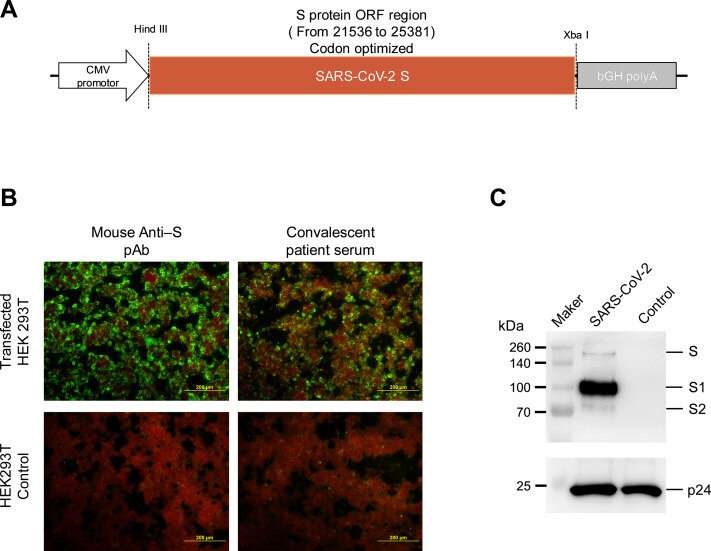Development and effectiveness of pseudotyped SARS-CoV-2 system

Coronavirus disease 2019 (COVID-19) has become a global pandemic. Currently, SARS-CoV-2 live virus-associated experiments need to be handled in biosafety level 3 (BSL-3) facilities. Previously, researchers had successfully established an HIV-based, pseudotyped virus system for studies on MERS-CoV and Ebola virus. Using the pseudotyped virus system, viral entry associated research, e.g., neutralization assays and in vitro pharmacodynamics, can thus be carried out in the BSL-2 facilities.
In this study, the authors have developed a pseudotyped SARS-CoV-2 system that efficiently operates in a BSL-2 facility. With transfection of two plasmids into HEK293T cells, the authors developed an HIV-1 core-based pseudotyped virus consisting of SARS-CoV-2 spike protein and found Huh7.5 cell line suitable for analysis of the pseudotyped SARS-CoV-2 system. The authors used the Convalescent serum from 11 COVID-19 patients to compare the results of SARS-CoV-2 live-virus microneutralization and the pseudotyped SARS-CoV-2 system and notice a significant correlation between the results obtained by the two methods.
The pseudotyped SARS-CoV-2 system, developed in this study, seems highly reliable for conducting the SARS-CoV-2 viral entry associated research in a BSL-2 facility. The system is suitable for high-throughput analysis and R&D of vaccines and drugs.
More information: Ren Yang et al, Development and effectiveness of pseudotyped SARS-CoV-2 system as determined by neutralizing efficiency and entry inhibition test in vitro, Biosafety and Health (2020). DOI: 10.1016/j.bsheal.2020.08.004




















